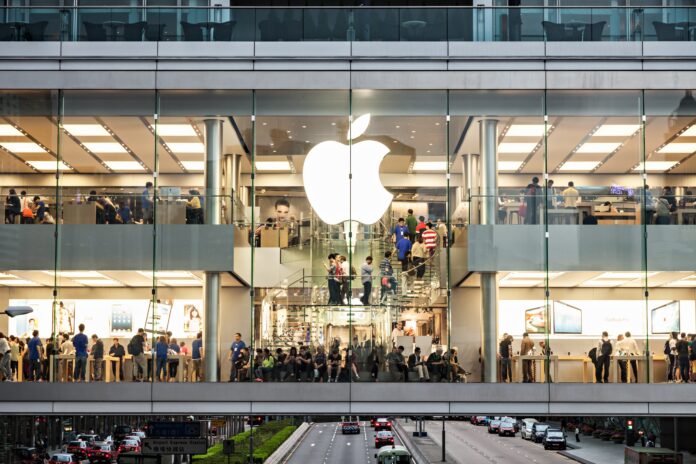Google and largest telcos lobby European Commission to make iMessage compatible with other chat apps; the spectre of “unpaid” Irish corporation tax rises again
Google has formed an ostensibly unlikely alliance with some of Europe’s largest operators, asking the European Commission to designate Apple’s iMessage as a “core” service. This would oblige Apple to make its closed chat app compatible with those of competitors.
They made their views known via a letter to the Commission, saying the iMessage should be included in the list of services slated to comply with the new Digital Markets Act, such as WhatsApp.
Power of the blue bubble
Apple won’t welcome this move. Part of the attraction of the iPhone, particularly among younger users, is that iMessage communications support more features than standard SMS, such as group chats and stickers. It works, in synch, on iPhones, iPads and Apple computers. iMessages between iPhone users are blue; green denotes the message has defaulted to being a boring old SMS on an non-Apple device.
This irritates the sender as well as the recipient, particularly in group communications. The more people use iMessage, the more people want to be part of the iMessage gang.
According to the Financial Times [subscription needed], which claims to have seen the letter to the Commission, signatories include Deutsche Telekom, Orange, Telefónica and Vodafone, as well as Google.
Qualifying as a business gateway?
Techcos with annual revenues of more than €7.5 billion are subject to the rules of the Digital Services Act and at least 10,000 active monthly business users in the European Union. It is thought iMessage is used by up to 1 billion people globally.
Apple has argued that although it meets the criteria to be covered by the Act, iMessage is a relatively small scale business messaging app in Europe and not one widely used by businesses to reach consumers – that is, it does not qualify as an important business gateway.
The Commission is making unconvinced noises, saying that as the app is pre-installed, it contributes to Apple’s income and is a key element in the company’s ecosystem – or what we used to call a walled garden.
The matter continues to be under scrutiny by the Commission.
Irish taxes rise again
Separately an adviser to Europe’s highest court, the European Court of Justice, has dismissed an earlier decision regarding a €14.3 billon tax bill that the Commission insisted Apple should pay to the Irish government, although the Irish government didn’t agree.
The government’s view was upheld by the lower General Court in 2020. Now Giovanni Pitruzzella, Advocate-General of the European Court of Justice, said that ruling should be “set aside”.
The General Court established that the Commission had the right to investigate Member States’ tax arrangements. However, it failed to establish that Apple had gained illegal economic advantage from its tax arrangements in Ireland which Pitruzzella says is due to “a series of errors in law”.
He thinks a new assessment is required. His opinion is not binding, but the FT reckons it is likely to be influential. If the European Court of Justice were to revisit the matter, there would likely be a scramble for a share of the spoils by other countries, no doubt leading to more legal wrangles.
Also, the Commission has not been successful at pursuing large corporations accused of not paying enough tax through the courts.
Back story
Legal action was taken after the Commission launched an initiative in 2013 to address what it saw as sweetener deals via tax concessions in member states.
The EU’s then Competition Commissioner, Margrethe Vestager, argued that Ireland’s tax arrangements with Apple in effect meant the company paid less than 1% tax in the EU, giving it unfair advantage and allowing it to amass profits.
Ireland maintained throughout that Apple has not received any preferential treatment nor any state aid. The country charges low corporation tax of 12.5% to drive investment and attract large enterprises such as in tech and pharmaceuticals. The FT says this has resulted in a more than tripling of tax receipts to €22.6 billion over the last eight years.
Ireland is in the process of setting up a sovereign wealth fund and intends to increase its corporate tax rate to 15% in the New Year, which apparently has already had a progressively negative impact in the last quarter.


